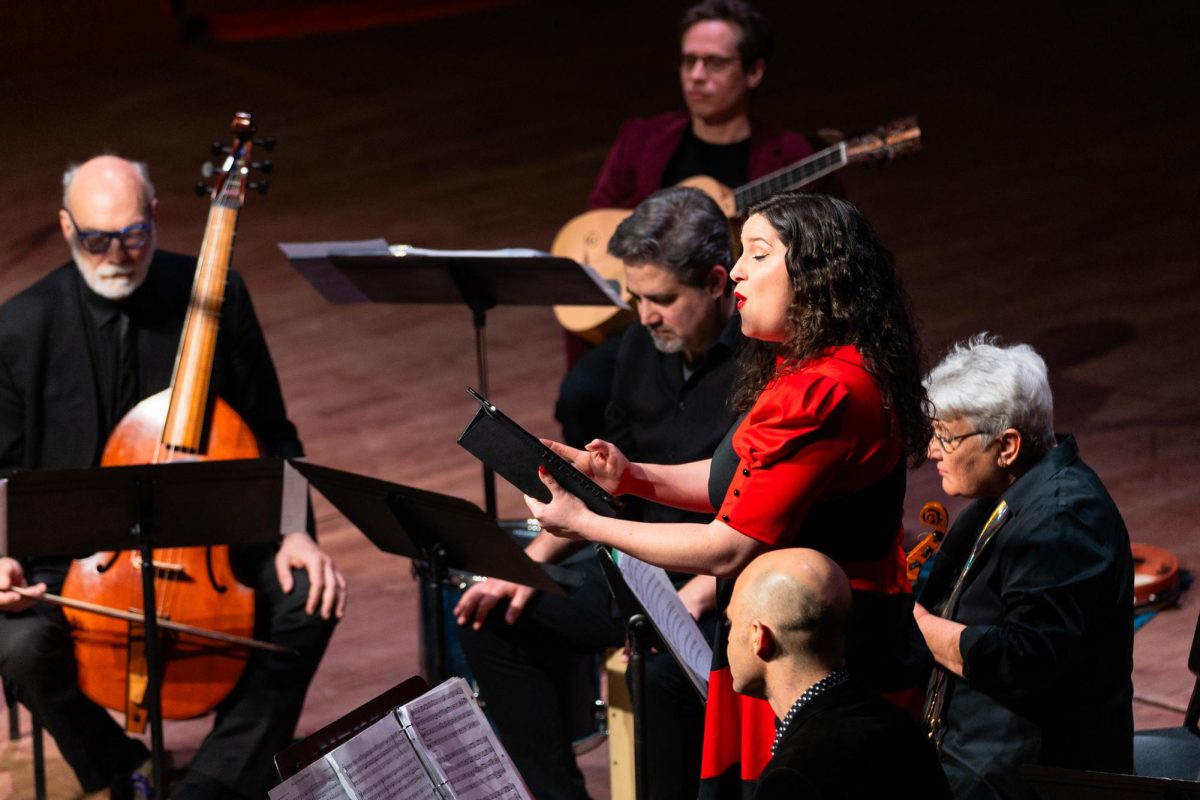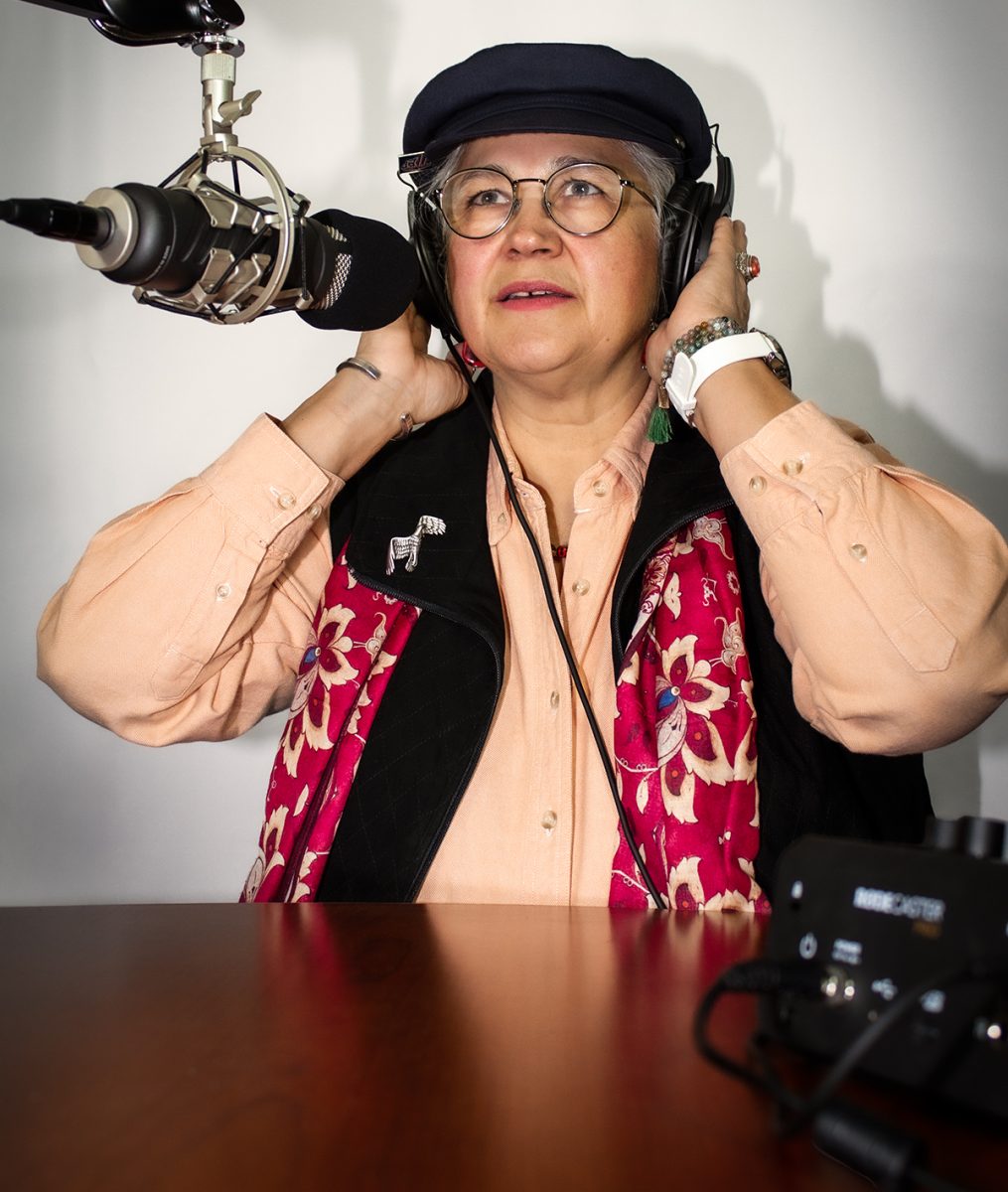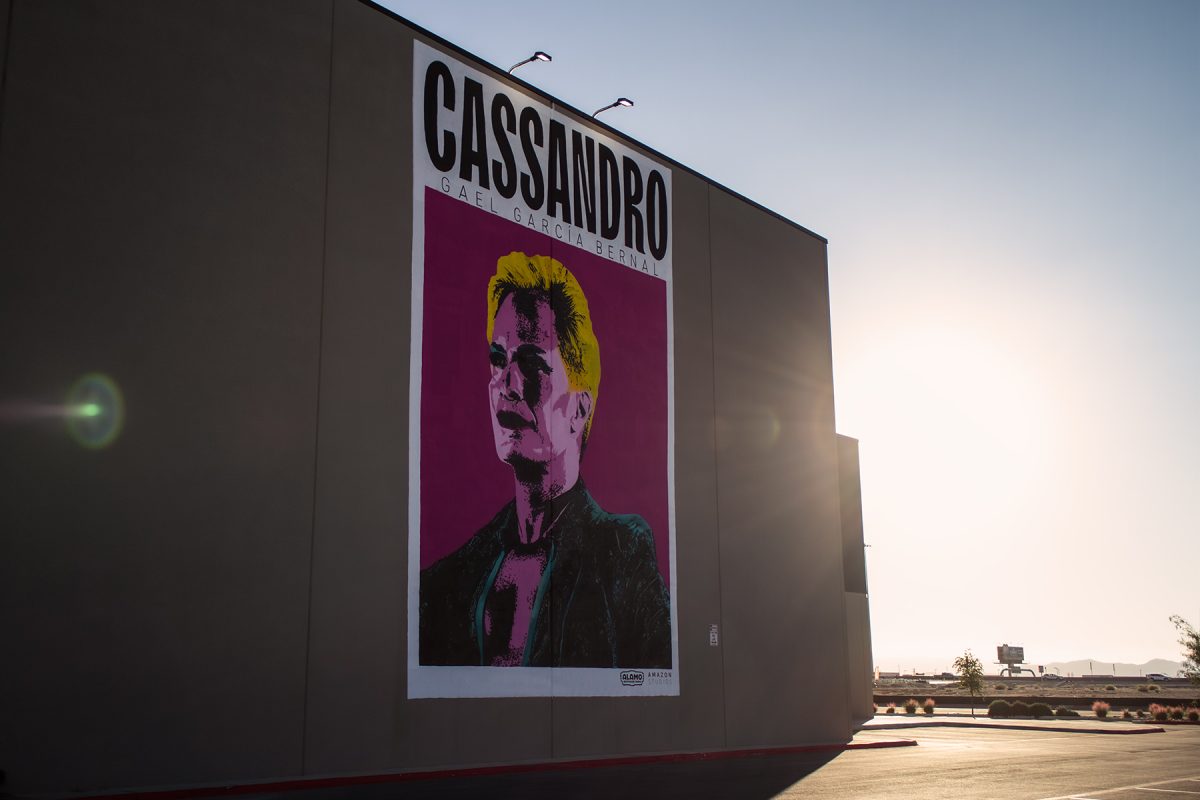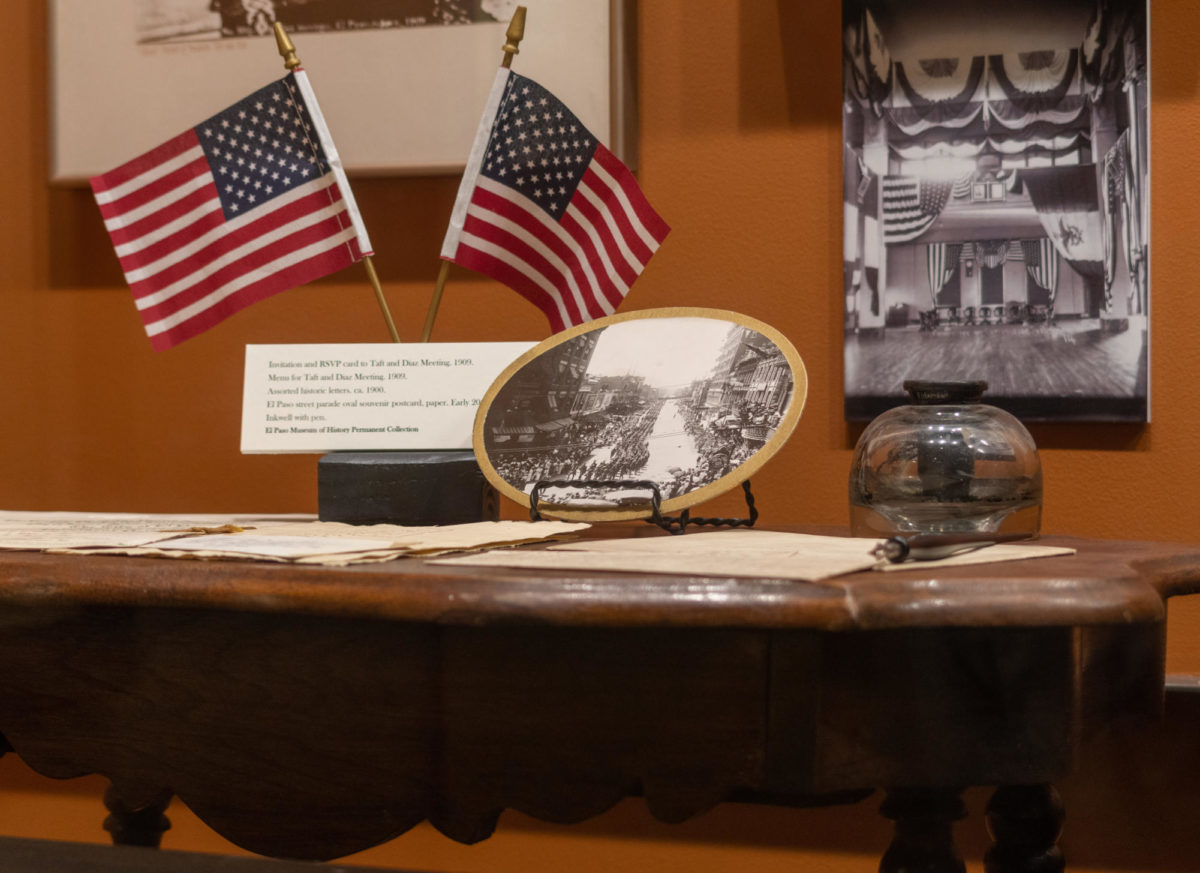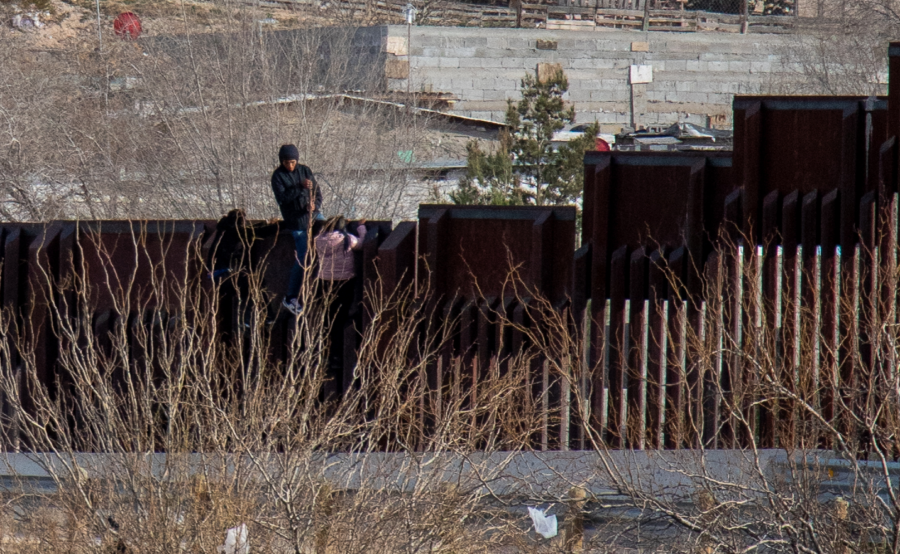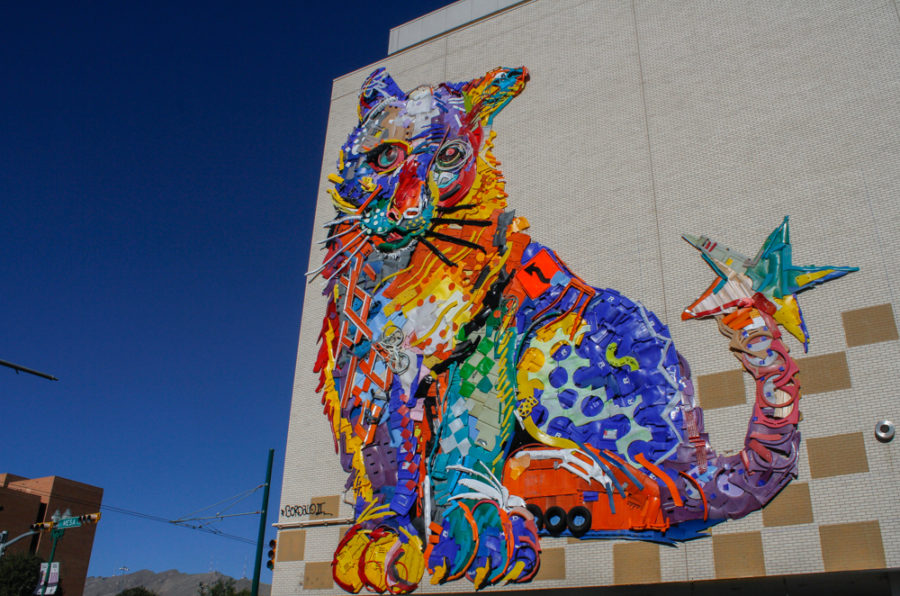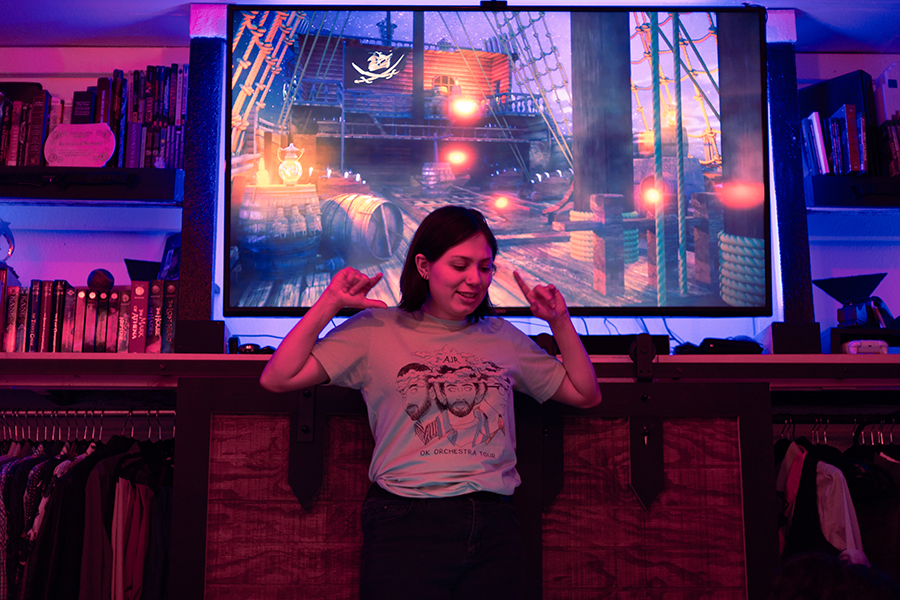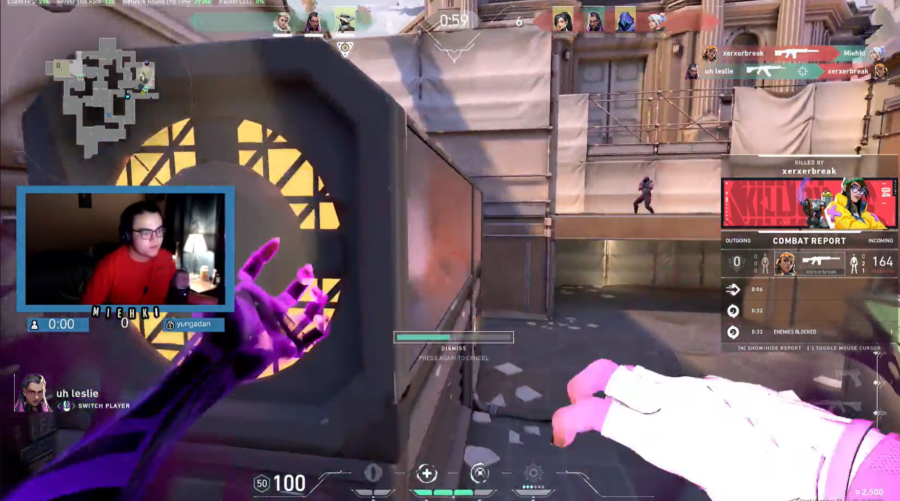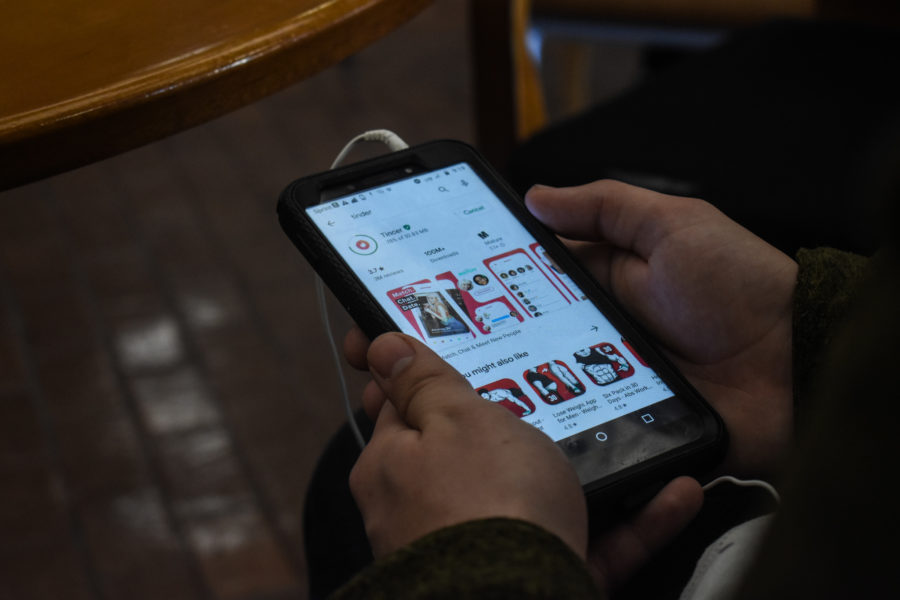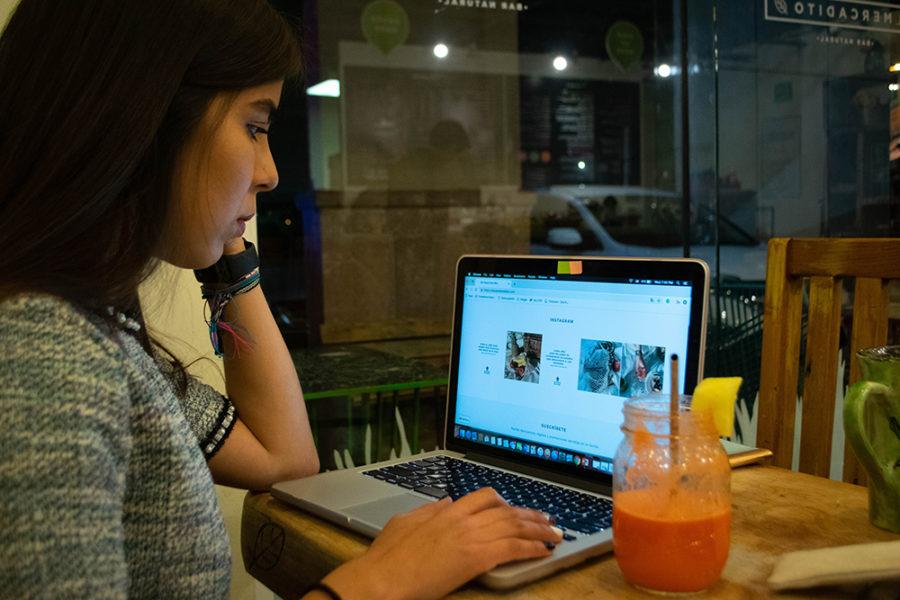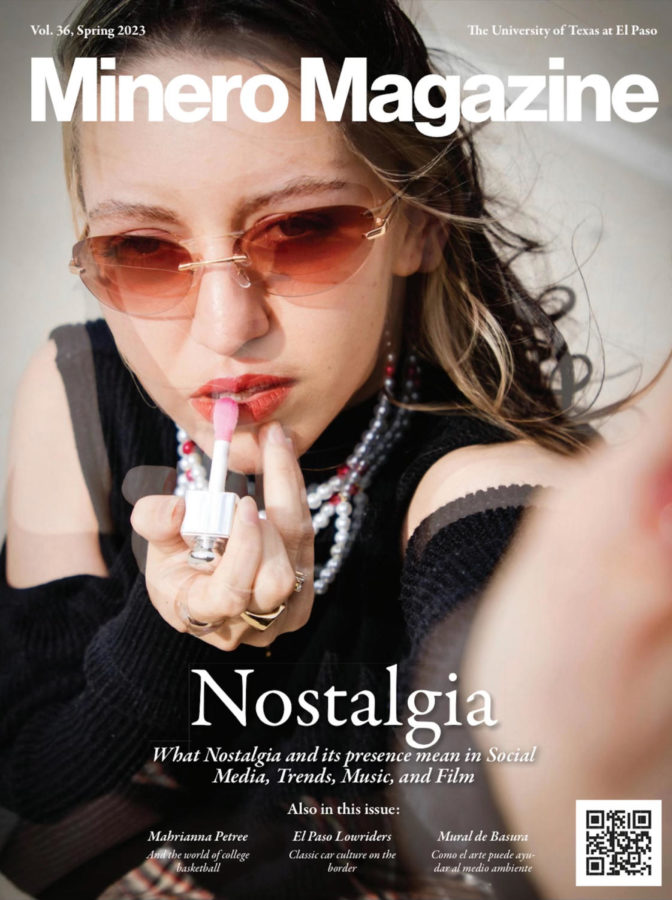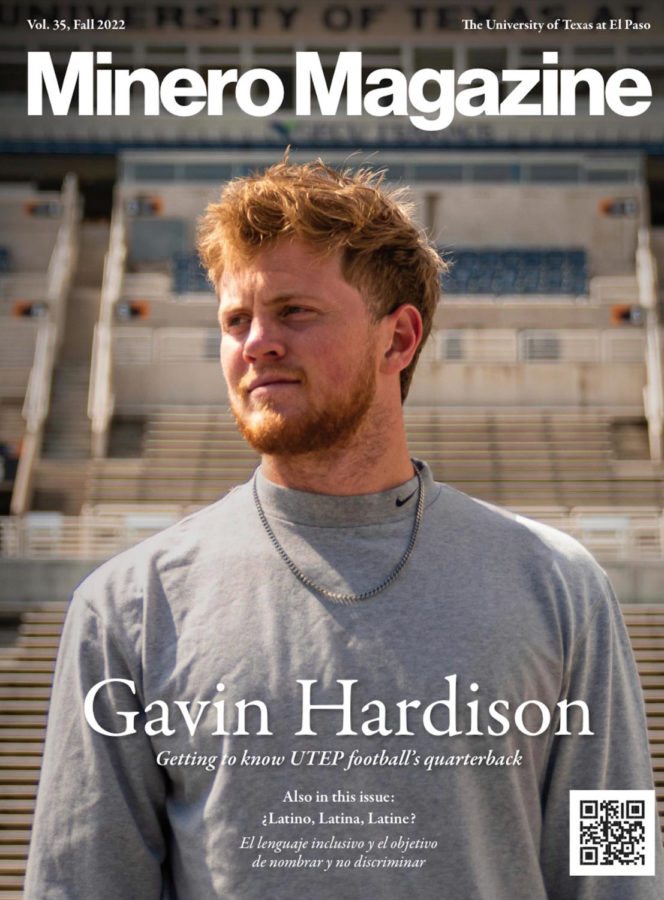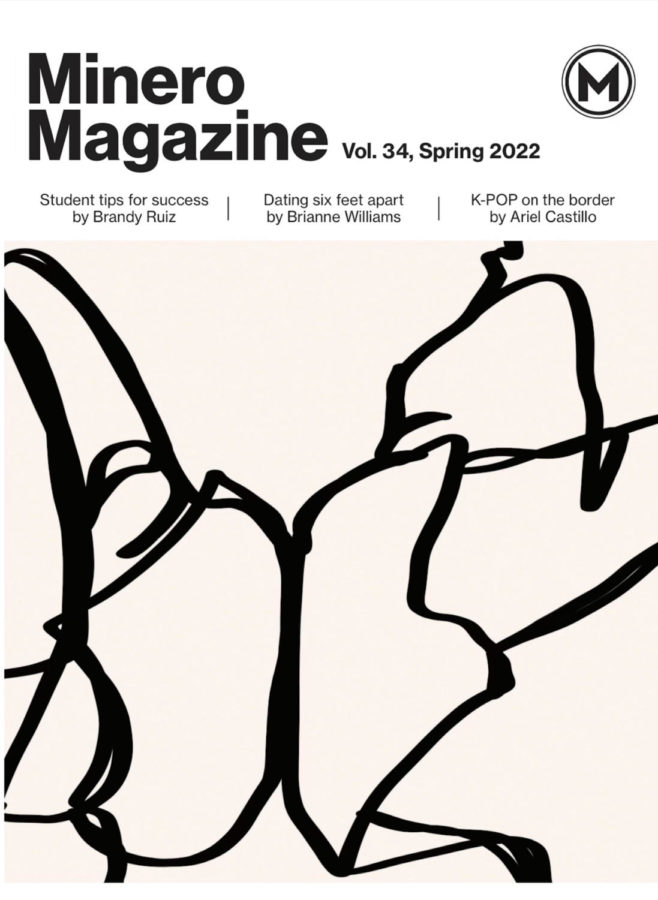Dance improvisation leader redefines rhetoric in the borderland
Alyssa Cardona
When UTEP dance instructor Sandra Paola Lopez Ramirez was a young child, she kept pointing at the place that would become her life passion. With a smile on her lips, she recalls the story behind discovering the world of dance during the time she grew up in Bogotá, Colombia.
“I was 4 and my mom says that when we would drive from my grandma’s house back home, we would drive on the same street, and I would always be pointing to the window. I would always kind of tap at the window and say ‘mommy I want to go there.’ I was so insisting that she decided to stop one time,” Lopez says. “It was a ballet school and what I was pointing at was this big painting of a dancer, like a pull-up garage door.”
Being raised in a middle-class neighborhood by a loving and privileged family, as Lopez describes it, her parents had the financial stability to cover the costs of extracurricular activities and she was always given the freedom to explore other talents such as martial arts, music, sports and theater.
The education that Lopez received paved the way for her to enroll in the study of arts. In Colombia, children go the same school from K-12 and share eight hours a day with the same students. “The people I grew up with are like my brothers and sisters, we literally grew up together and the ties and the support found there were incredible and last till this day,” Lopez says. “My school was very centered on the performing arts, so we took dance, painting, music, theater and martial arts from pre-K through fifth grade. Once in sixth grade, it was kind of specialized to choose one of those and, of course, I chose dance.”
For Lopez, dancing was not only the way in which she grew up, it became a vital part of her life and the way she presented herself to others. Her path had dance written all over and it was in seventh grade when she understood that dance was more than just an interest for the weekends. “We would perform a lot, so I was in dance all the time, like in school and outside of school and very young, perhaps in seventh grade, I knew dancing was more than just a hobby,” Lopez says. “It was my way of living and my way of being in the world. It was never in my childhood that dance was not a possibility. It was always there, so when I started thinking of what I was going to do with my life, it was always a choice.”
Envisioning herself in the dance world, Lopez was not going to settle for less. As her beloved Colombia didn’t offer a dance program, where she could continue working on her education and professional growth, she decided to move to the U.S. in 2004. Lopez says moving from Colombia and attending Missouri State University, where she would receive a Bachelor of Arts degree in dance performance, was an exciting experience she won’t forget.
After graduating from Missouri State in 2008, Lopez also received a master’s degree in education in curriculum and instruction with an aesthetic education focus from the University of Illinois at Urbana-Champaign in 2013. In 2014, Lopez moved to El Paso and became a faculty member at the University of Texas at El Paso’s Department of Theatre and Dance. Lopez teaches an array of dance courses at UTEP, she has held several improvisation workshops as well as offering dance lessons for children.
Stephanie Zamora, junior digital media production major, describes the impact that Lopez has had on her while taking a dance course and throughout the times she has seen her perform.“Sandra is a very easygoing person with a strong character, imposing the courage in you to make the impossible, possible,” Stephanie says. “She is an affectionate woman with high standards because she knows that if people are consistent, the best will come out of them and she pushes you to do so.”
Lopez and her husband, pianist Chris Reyman, co-founded In2Improv, a community-based organization that seeks to empower underserved communities in the El Paso and Ciudad Juárez area through the richness of performance and improvisation, while promoting social and artistic development.
Spark, Knee-Jerk and Cattleya are three programs within the organization that Lopez says create spaces for others to freely express themselves. “Everything is framed around this idea that we can be both who we are, who we want to be and who we are becoming,” Lopez says. “We are creating spaces where people can create new things together by creating the conditions for people to do something new.”
Cattleya was created for women to challenge the way they perceive themselves spiritually, emotionally and physically, all while recreating the representations of femininity and masculinity.
Lopez says the success of In2Improv and Cattleya projects had a powerful outcome, leading them to collaborate with Sin Violencia A.C., a women’s shelter in Cd. Juárez that works to prevent gender violence as well as provides women with medical and psychological services.
Lopez says living in the U.S. for 14 years has allowed her to become more aware of the complexity of racism and sexism, both inside and outside the U.S., which has positioned her as an activist in the name of feminism. “Feminism to me has to do with justice, with not having to worry about getting assaulted or being killed. It is about having an equal right to live and to be seen,” Lopez says.
Her recent activities not only reflect her frame of mind, dialogue and individuality, but recently politics have undeniably found a way into her works. One example is Braiding Borders, a peaceful protest that occurred on the same day as President Donald Trump’s inauguration in January 2017, where 52 women from El Paso and Cd. Juárez came together to braid their hair in response to Trump’s racist and hateful rhetoric against immigrants.
The event received national media coverage from The New York Times, Remezcla and Splinter News. Lopez says the strong energy and the power around this performance was greater than what she ever imagined. “We were blown away, we didn’t expect it at all. It was like a cherry on top because that’s not why we were doing it,” Lopez says. “We were there showing solidarity and resistance by doing what we want to see rather than opposing what we don’t want. It was a reassurance of the power of that choice.”
Being a ballet dancer for 27 years, Lopez says, didn’t prevent her from facing harsh criticism from mentors and peers in regards to her body image. “I was always told I needed to be on a diet, that I didn’t fit the mold and that I needed to get surgery to fix my feet and that I was never going to be a dancer,” Lopez says.
A recent performance piece titled “Red moon, white moon, blue moon,” was inspired by Lopez’s inner experience and the acquisition of birth control pills at the age of 16, when she suffered from very strong cramps. The only knowledge Lopez had of birth control pills, besides getting rid of the severe cramps, was that she could not become pregnant. When a doctor told her she hadn’t been ovulating in quite a while in 2016, Lopez began researching about the menstrual cycle. “I started reading about the menstrual cycle, ancient feminists archetypes. I started tracking my cycle, keeping a journal that I keep to this day and getting in touch with my cycle and what it means to be a cyclical woman and the power in that,” Lopez says.
Lopez says she became aware of how culture demonized menstruation and created a dance that celebrated women’s different experiences with menstruation. The piece which, once again, was only intended as a personal and intimate piece, quickly became a fueled political statement. “For me, initially it was like, ‘I’m just going to make a dance about menstruation because that’s what I’m doing in my life right now,’ but it became this big political statement and another reason why this is very important to show, has to be talked about and seen,” Lopez says.
Hilda Guerra, a senior Spanish education major and former student of Lopez, says that the instructor transmits important messages through her dances. “Sandra made me see different points of view in respect to the traditional roles that a woman is taught to follow. She made me aware of the fact that because you undeniably are a woman, there is no such rule as ‘you are expected to get married and have children,’” Hilda says. “That is an idea that society has pushed us to believe and at the end of the day, you don’t need to procreate to feel fulfilled.”
For Lopez, she says the greatest reward when culminating a lecture or a project is for the participants to take away something and that her work resonates with them in some way.
Isabel Portillo, senior digital media production major, says Lopez is one of the most energetic persons she has known. “Through dancing, she would radiate the room with energy, transmitting it to us and making us feel confident practicing every movement and allowing us to laugh at our own mistakes,” Isabel says.
Reyman says he admires his wife because she continues to grow as a daughter, a woman, a performer and as an activist, always striving to do better. “I learn from Sandra Paola on a daily basis, she supports me to grow in all that I do,” Reyman says. “Our professional and personal lives are completely intertwined and through these blurred boundaries, I constantly learn how to be a better collaborator, partner and human.”
En Breve
Cuando la profesora de danza en la Universidad de Texas en El Paso, Sandra Paola Lopez Ramirez, era niña, ella no dejaba de señalar una escuela de baile, actividad que se convertiría en su pasión. Con una sonrisa en sus labios, cuenta que, junto a su madre, solían pasar frente a la escuela de camino a casa. Así fue como Lopez descubrió el mundo de la danza durante su tiempo creciendo en Bogotá, Colombia.
Siendo criada en un vecindario de clase media, como Lopez lo describe, sus padres tenían la estabilidad financiera para cubrir los gastos de actividades extracurriculares, de modo que Lopez siempre tuvo libertad para explorar sus talentos. Por supuesto, ella siempre eligió la danza.
Como su querida Colombia no ofrecía un programa de danza en donde Lopez pudiera continuar su educación y crecimiento profesional, ella decidió mudarse a los Estados Unidos y estudiar en la Universidad Estatal de Missouri en 2004. Para 2014, Lopez se convirtió en miembro de la facultad del departamento de danza y teatro en UTEP, mudándose a la frontera.
Actualmente, Lopez y su esposo, el pianista Chris Reyman, fundaron In2Improv, una organización que busca empoderar a las comunidades desatendidas de la frontera El Paso-Ciudad Juárez a través de las riquezas de la interpretación e improvisación, promoviendo un desarrollo artístico y social.
Lopez dice que vivir por 14 años en Estados Unidos la ha hecho ser más consciente del racismo y sexismo existente dentro y fuera de Estados Unidos, lo que la ha posicionado como una activista en nombre del feminismo.
“El feminismo para mí tiene que ver con justicia, con no tener que preocuparse por ser asaltada o matada. Es sobre tener un derecho equitativo a vivir y ser vista”, Lopez dice.
Sus actividades recientes no sólo reflejan su crítica, diálogo e individualidad como artista, sino que han encontrado la manera de ser politizados.
Un ejemplo es “Trenzando Fronteras”, una protesta pacífica que ocurrió el mismo día de la inauguración del presidente Donald Trump en enero del 2017, donde 52 mujeres de El Paso y Cd. Juárez se reunieron para trenzar su cabello en respuesta de la retórica racista y de odio hacia inmigrantes.
Una obra reciente se titula “Red moon, white moon, blue moon”. Fue inspirada por la experiencia personal de Lopez al momento de adquirir píldoras anticonceptivas a los 16 años, cuando sufría de cólicos fuertes.
Lopez dice que en cuanto se hizo consciente de la cultura demonizada de la menstruación, creó un baile que celebrara las diferentes experiencias de las mujeres con la menstruación. La obra pretendía ser entendida como una personal e íntima, pero se convirtió en una fuerte declaración política.
“Para mí, inicialmente era como ‘solamente voy a hacer un baile sobre la menstruación porque es lo que está pasando en mi vida ahorita’, pero se convirtió en esta gran declaración política y otra razón por la que era importante mostrarla, hablarla y verla”, Lopez dice.


